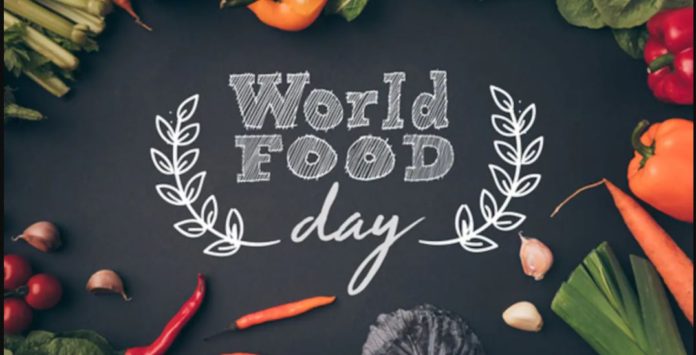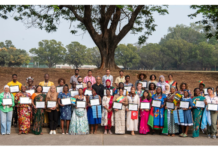The Ministry of Lands, Agriculture, Fisheries, Water and Rural Development in Zimbabwe, and the United Nations led by Food and Agriculture Organization (FAO), World Food Programme and UNDP marked World Food Day by highlighting the importance of working together as Zimbabwe continue to fight food insecurity amid the COVID-19 pandemic.
This year’s theme is “Our actions are our future. Better production, better nutrition, a better environment and a better life.” For FAO, the Four Betters represent FAO’s contribution to the SDGs and other high-level aspirational goals. They reflect the interconnected economic, social and environmental dimensions of agri-food systems. Due to COVID-19, this year’s event was hybrid held virtually and physically in Harare.
This year’s World Food Day being is observed across the globe with calls to transform agri-food systems to be more efficient, inclusive, resilient and sustainable to ensure that everyone, everywhere has access to enough affordable, safe and nutritious food to lead active and healthy lives.
COVID-19 pandemic
The Deputy Minister of Lands, Agriculture, Fisheries, Water and Rural Development (MoLAFWRD), Douglas Karoro said COVID-19 has brought a host of challenges and the government is addressing them.
“Our ministry is aware of the challenges posed by COVID-19 pandemic in the agriculture sector. The pandemic brought about concerns surrounding the capacity to guarantee safe and affordable accessibility and utilization of food. The COVID-19 pandemic has severely threatened an already critical and fragile Zimbabwe food and nutrition security situation, arising mainly from the consecutive years of drought, which continue piling pressure on the country’s macroeconomic conditions. In response, our Ministry has embarked on numerous interventions to try and rehabilitate the agricultural infrastructure in order to optimize agricultural productivity and to ensure food and nutrition security,” said Hon Karoro in a keynote address on behalf of his Minister, Hon Dr AJ Masuka.
FAO Sub-regional Coordinator for Southern Africa and FAO Representative for Zimbabwe, Lesotho and eSwatini, Patrice Talla said the pandemic has unified people work together more.
“From the disruption of agri-food systems and a global economic recession to an increase in food insecurity and inequality, the pandemic has exposed the fragility of our societies, but it has also shown how people can come together towards a common goal. As a global community, we can overcome these challenging times and create a better future – one that is more sustainable for present and future generations,” he added.
Consensus
During the commemorations, there was a general consensus on how the pandemic has disrupted food systems and that the situation calls for national solidarity to take action and sensitize the public on how everybody has a role to play in transforming our agri-food systems by changing the way we produce, transform, consume and waste our food.
WFP Country Representative and County Director Francesca Erderlmann underlined that an urgent change of route is needed with regards to COVID-19 pandemic.
“We know that despite the good harvest in Zimbabwe this year and the positive forecasts for the upcoming season, there are still over five million people in the country who will not have enough to eat. Many of these people were vulnerable before the pandemic and will continue to be pushed deeper into poverty if we are unable to act with purpose and in a timely manner,” she said.
UNDP Deputy Resident Representative Eliman Jagane echoed the same sentiments saying the pandemic has put the resilience of our work to a test.
“Today we commemorate World Food Day with the reminder that food is not enough for everyone on earth. While the occurrence of disasters such as climate change, plagues of locusts, have always posed threats to our development gains, the multiplying effects of the COVID-19 pandemic has pushed more people in to hunger and poverty,” he explained.
The World Food Day is observed annually on 16 October, the anniversary of the founding of the Food and Agriculture Organization of the United Nations. The main objective of the day is to heighten public awareness of the nature and dimensions of the long-term world food challenges, and to develop further national and international solidarity in the struggle against hunger, malnutrition and poverty.








